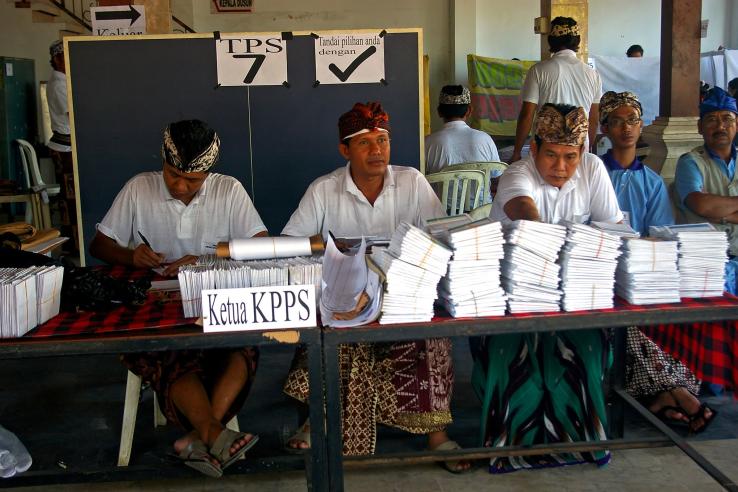J-PAL Southeast Asia at 10: Political Economy and Governance

Photo: Komar | Shutterstock.com
Community-Led Transparency and Accountability for Maternal and Child Health in Indonesia and Tanzania: In Indonesia, J-PAL affiliated researcher Dan Levy (Harvard) and co-authors Jean Arkedis (Harvard), Jessica Creighton (Harvard), Akshay Dixit (Harvard), Archon Fung (Harvard), Stephen Kosack (Harvard), and Courtney Tolmie (Results for Development ) conducted a mixed methods randomized evaluation of a transparency and accountability program designed to improve maternal and newborn health (MNH) outcomes, known as the Transparency for Development (T4D) program. The program was community-led and non-prescriptive, aiming to encourage community participation to address local barriers to access to quality care for pregnant women and infants. The T4D program drew strong participation but did not have significant impact on the use or quality of MNH services, infant health outcomes, civic participation, and perceptions of empowerment among recently pregnant mothers in the community.
Combating Corruption in Community Development in Indonesia: J-PAL affiliated researcher Ben Olken (MIT) devised a method to measure corruption and used it to evaluate alternative strategies to reduce corruption on Indonesian road-building projects. The evaluation tested two types of strategies: encouraging community participation and increasing the probability of centrally-administered audits. The results suggest that community participation should not be seen as a panacea for corruption, while also demonstrating that even entrenched corruption can be reduced.*
Addressing the Capacity Constraints of Villages through a Learning Management System: Village governments often face capacity constraints to manage budgets, design and implement impactful development projects, and involve citizens in village governance. To address these issues, the Ministry of Home Affairs, with the support of the World Bank, will roll out a Learning Management System (LMS) that is adaptable to the varied needs of village governments. The system will combine an e-learning platform with peer-to-peer learning and mentoring, in order to facilitate knowledge diffusion within and across village government . To better understand the impact of the program, former J-PAL affiliated researchers Benjamin Marx (Boston University) and Samuel Bazzi (UC San Diego) and co-authors Masyhur Hilmy (Boston University), Mahvish Shaukat (World Bank), and Andreas Stegmann (University of Warwick) plan to evaluate the effect of LMS in building village government capacity, governance, and development. The pilot study results are forthcoming.
*Not Implemented by J-PAL SEA (i.e., either implemented independently by researchers, partner organizations, or by Innovations for Poverty Action Philippines).